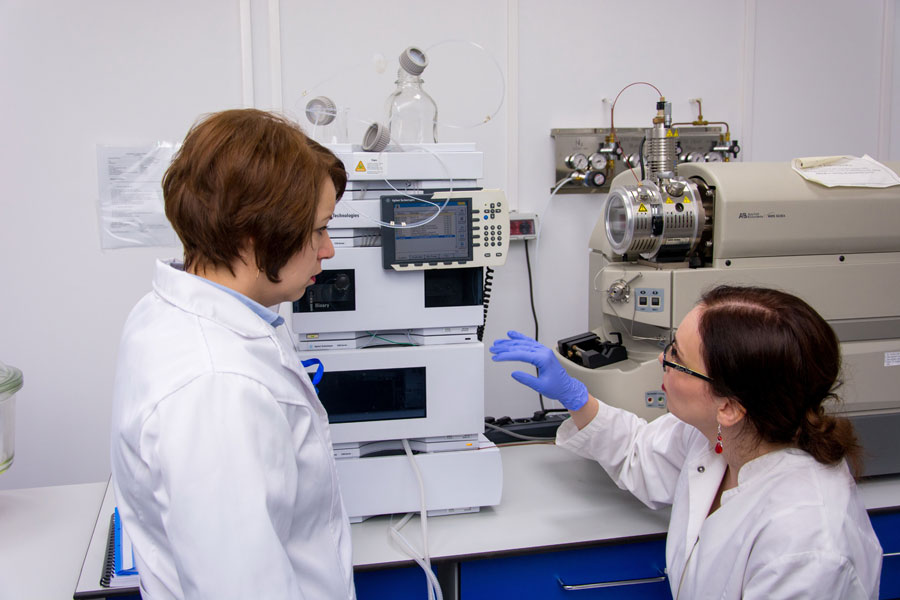C. Burz, I. Berindan-Neagoe, O. Balacescu, N. Todor, D. Pelau, C. Floares, G. Kacso, C. Tanaselia, M. Ursu, L. Vlase, S. E. Leucuta, V. Cristea, A. Irimie, Oxaliplatin in patients with metastatic colorectal cancer: efficacy and pharmacokinetics parameters, Journal of BUON, 15 (2010) 263-269.
Title: Oxaliplatin in patients with metastatic colorectal cancer: efficacy and pharmacokinetics parameters
Abstract: PURPOSE: The aim of this study was to investigate the efficiency of the FOLFOX-4 regimen and to evaluate the pharmacokinetics of oxaliplatin in untreated patients with metastatic colorectal cancer. METHODS: 43 patients were enrolled in the study. Patients received oxaliplatin 85 mg/m(2) as 2-h i.v. infusion, on day 1, and bolus 5-fluorouracil (5FU) 400 mg/m(2) plus leucovorin (LV) 200 mg/m(2) followed by 5FU 600 mg/m(2) as 22-h infusion on day 1 and 2, every 2 weeks. The pharmacokinetics of oxaliplatin evaluated in 4 patients was performed in blood, plasma and ultrafiltered plasma (UFT) by Inductively Coupled Plasma Mass Spectrometry (ICP-MS). RESULTS: The overall response rate and the median time to progression (TTP) were 53.49% and 7.1 months, respectively. Grade 3-4 toxic effects were observed in 11 (25.5%) patients. Grade 3 neuropathy was observed in 13.95% of the cases. In univariate analysis only Eastern Cooperative Oncology Group (ECOG) performance status (PS) was correlated with response. No correlation was found between grade 3-4 adverse events and the patient characteristics. The area under the time-concentration curve (AUC) in UFT was 4.8 + or - 0.72 standard deviation (SD) microg h/ml and the total clearance 30.17 + or - 7.75 l/min. The values for volume of distribution and the maximum concentration were 567 + or - 20 liters and 0.38 + or - 0.17 ug/ml, respectively. CONCLUSION: FOLFOX-4 was an effective regimen with good tolerability in previously untreated metastatic colorectal cancer patients. The pharmacokinetics of oxaliplatin was triphasic with a short initial distribution phase and a long terminal elimination phase
Key words: chemotherapy, colorectal cancer, oxaliplatin, pharmacokinetics


























